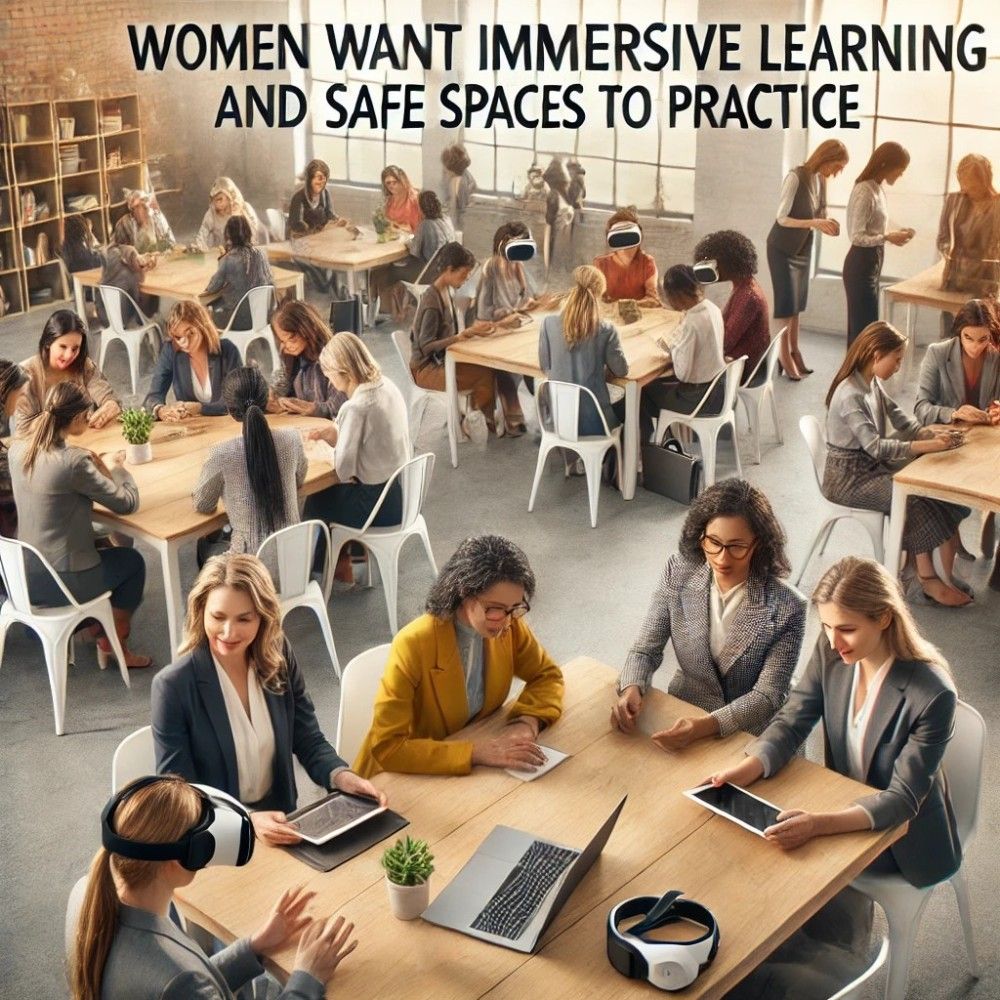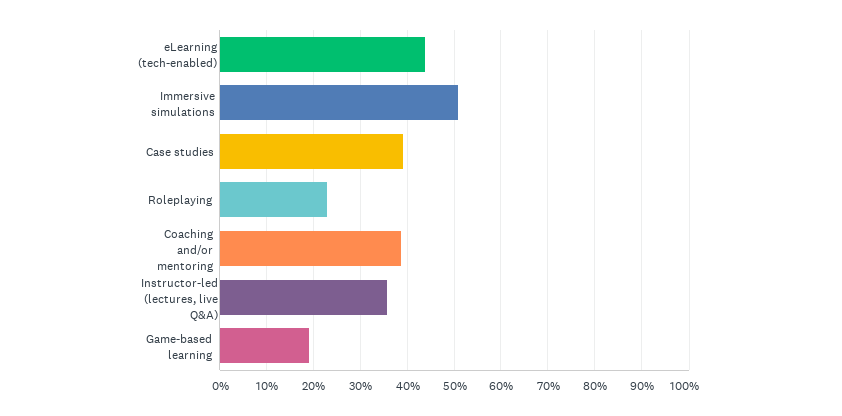
Whether you're stepping into your first job or have been navigating your career for years, there comes a time when you realize that growing your knowledge or refining your skills is key to reaching your full potential. With countless professional development options out there—from certificate programs and leadership courses to workshops, online classes, and in-person seminars—it can be overwhelming to decide which path is right for you.
At Executive Ally, we understand the unique needs of women managers and entrepreneurs. That’s why we’ve developed immersive professional development courses designed specifically to empower women in their careers. We recently surveyed nearly 300 professional women to gain insights into their experiences and expectations when it comes to professional development. Sixty percent of respondents said the biggest influence on their decision to take a course is whether they will have the opportunity to practice what they have learned through training simulations or with on-the-job support in real-life scenarios.
In this article, we're excited to share additional key findings about how professional women view immersive and experiential learning opportunities as a differentiator for their careers.
Research consistently shows that immersive and experiential learning methods are particularly effective for women, who often thrive in environments where they can actively apply what they learn. According to a study published in the
Journal of Applied Psychology, experiential learning can significantly improve the retention of complex skills, such as leadership and communication, by allowing participants to practice in real-life scenarios. This approach helps to bridge the gap between theory and practice, which is crucial for building confidence and competence—areas where women have historically faced barriers due to societal expectations or workplace dynamics.
Moreover, immersive learning experiences, like simulations and role-playing, provide a safe space for women to experiment with new behaviors and strategies, receive immediate feedback, and refine their skills. This type of learning is especially beneficial in preparing women for leadership positions, where the ability to navigate interpersonal dynamics and make strategic decisions is key.
While immersive learning is valuable for all professionals, it is particularly well-suited to addressing the unique challenges that women face in their careers. The combination of applied learning, safe experimentation, and collaborative environments makes it a powerful tool for women’s professional development.

When it comes to absorbing new information and skills, the way content is delivered can make all the difference. According to our survey, the majority of women find immersive simulations to be the most effective learning method, with over half of respondents rating them highly. These simulations provide a hands-on approach that can make complex concepts more tangible and easier to grasp.
Here’s how different learning methods ranked among the women we surveyed. Immersive learning and/or simulations was ranked as the most highly effective at just over 51%.

Leadership and communication are two of the most sought-after skills in the professional world, and it’s no surprise that immersive courses are seen as the gold standard for developing them. More than 46% of respondents to Executive Ally’s survey found courses on leadership to be “very helpful,” followed by courses focused on communication and technical skill development. These topics resonate because they address the real-world challenges that women face in their careers every day. Immersive learning environments allow women to practice new skills in realistic settings, receive immediate feedback, and adjust their strategies in real time. This hands-on approach enhances skill retention and builds the confidence needed to apply these skills in high-pressure situations. For example, courses that incorporate role-playing, simulations, and interactive problem-solving activities enable women to develop leadership and communication skills in contexts that mirror their everyday professional challenges, making the learning process more relevant and impactful.

In fact, research by the Harvard Business Review has found that women who engage in experiential learning, particularly in leadership development programs, are 22% more likely to receive promotions within 18 months compared to those who only participate in traditional learning formats. This statistic highlights the power of immersive experiences to fast-track career growth by equipping women with the practical skills and confidence they need to excel in leadership roles.
Here’s a look at the learning topics that women responding to Executive Ally’s survey found “very helpful” for their careers. Respondents were able to choose more than one answer:
- Leadership development: 46.70% found the course “very helpful”
- Communications: 39.73%
- Technical skill development: 39.65%
- Team leadership: 37.89%
- Financial management / project economics: 34.36%
- Industry and technology trends: 31.28%
- Change management: 30.36%
- Program and project management: 28.00%
Stay Tuned for Part 2
Found this helpful? Share it with your network, and don’t forget to follow us for more insights on women’s professional development! Part 2 will post shortly and we’ll dive deeper into the value of in-person learning and connection, exploring how flexible learning formats can accommodate different needs. We’ll also discuss why women learning together provides unique advantages and offer guidance on selecting the right course to further your professional development.






